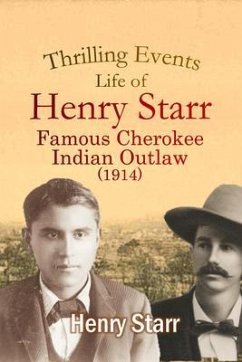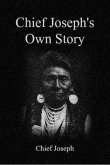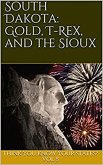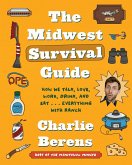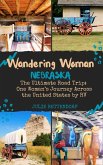"He was the last of his kind, a true cowboy bandit." -Daily News, Aug. 29, 2010
"His record of bank and train robbery in the Old West was second to none." -Philadelphia Inquirer, Jul. 18, 1965
"Henry Starr was addicted to the thrill of robbing banks...led a gang in bank robberies in Kansas and Arkansas....While in the Colorado penitentiary, he wrote his autobiography." -More Oklahoma Renegades (2010)
"The innovative Starr was the most celebrated of the infamous Cherokee Starr family . He published Thrilling Events , a chronicle of his criminal exploits." -The North Carolina Historical Review (2009).
Writing his autobiography from the penitentiary, who did the infamous bandit Henry Starr blame for his life of crime and did he have any regrets? How did he twice escape a death sentence?
In 1914, Henry Starr (1873-1921) would answer these questions and more in his autobiography published under the title "Thrilling Events, Life of Henry Starr."
In introducing his book, Starr writes:
"I had always looked upon the Indian as supreme, and the white renters as poor white trash who moved from year to year in covered wagons with many dogs and tow- headed kids peeping out from behind every wagon-bow, and who, at the very best, made only a starving crop. In the days of my childhood the Indian landowner was looked up to by his white renters, and always treated with courtesy and respect; but the years have brought about a great change; the white man holds power, and the same hypocritical renter has grown arrogant and insulting ; whenever the Indian is spoken to at all, it is with a sneer. The Indian, and especially the fullblood in Oklahoma, is an outcast in his own country, and it is with a feeling of sadness and apprehension that I think of his future."
Starr was a horse thief and train robber. Distantly related to Sam Starr, husband of Belle Starr, he was the last in a long line of Starr family criminals.
Starr was tried for the murder of Deputy U.S. Marshal Floyd Wilson in 1893. Twice sentenced by Judge Isaac Parker to hang for murder, following a series of appeals and Starr's confrontation with Cherokee Bill, who was attempting a prison break, his sentence was reduced to a sentence of imprisonment for manslaughter. Starr was eventually granted a Presidential pardon and released.
Starr went on to form a notorious gang that terrorized and robbed throughout northwest Arkansas around the start of the 20th century.
He was imprisoned again in 1915, wrote his memoirs and, released on parole, even portrayed himself in the silent film, A Debtor to the Law (1919). While attempting to rob a bank in Harrison, Arkansas, in 1921, he was shot by the bank president W. J. Myers with a .38 caliber rifle, and later died of his wounds.
"His record of bank and train robbery in the Old West was second to none." -Philadelphia Inquirer, Jul. 18, 1965
"Henry Starr was addicted to the thrill of robbing banks...led a gang in bank robberies in Kansas and Arkansas....While in the Colorado penitentiary, he wrote his autobiography." -More Oklahoma Renegades (2010)
"The innovative Starr was the most celebrated of the infamous Cherokee Starr family . He published Thrilling Events , a chronicle of his criminal exploits." -The North Carolina Historical Review (2009).
Writing his autobiography from the penitentiary, who did the infamous bandit Henry Starr blame for his life of crime and did he have any regrets? How did he twice escape a death sentence?
In 1914, Henry Starr (1873-1921) would answer these questions and more in his autobiography published under the title "Thrilling Events, Life of Henry Starr."
In introducing his book, Starr writes:
"I had always looked upon the Indian as supreme, and the white renters as poor white trash who moved from year to year in covered wagons with many dogs and tow- headed kids peeping out from behind every wagon-bow, and who, at the very best, made only a starving crop. In the days of my childhood the Indian landowner was looked up to by his white renters, and always treated with courtesy and respect; but the years have brought about a great change; the white man holds power, and the same hypocritical renter has grown arrogant and insulting ; whenever the Indian is spoken to at all, it is with a sneer. The Indian, and especially the fullblood in Oklahoma, is an outcast in his own country, and it is with a feeling of sadness and apprehension that I think of his future."
Starr was a horse thief and train robber. Distantly related to Sam Starr, husband of Belle Starr, he was the last in a long line of Starr family criminals.
Starr was tried for the murder of Deputy U.S. Marshal Floyd Wilson in 1893. Twice sentenced by Judge Isaac Parker to hang for murder, following a series of appeals and Starr's confrontation with Cherokee Bill, who was attempting a prison break, his sentence was reduced to a sentence of imprisonment for manslaughter. Starr was eventually granted a Presidential pardon and released.
Starr went on to form a notorious gang that terrorized and robbed throughout northwest Arkansas around the start of the 20th century.
He was imprisoned again in 1915, wrote his memoirs and, released on parole, even portrayed himself in the silent film, A Debtor to the Law (1919). While attempting to rob a bank in Harrison, Arkansas, in 1921, he was shot by the bank president W. J. Myers with a .38 caliber rifle, and later died of his wounds.
Dieser Download kann aus rechtlichen Gründen nur mit Rechnungsadresse in A, D ausgeliefert werden.

